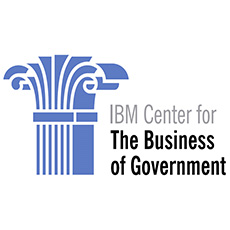
New Research Report Recipients

We are pleased to announce our latest round of awards for new reports on key public sector challenges. Our content is intended to stimulate and accelerate the production of practical research that benefits public sector leaders and managers. We expect the following reports to be published in late 2019.
Risk Management in the AI Era: Navigating the Opportunities and Threats of AI to Overall Risk Management in the 21st Century by Justin Bullock, Texas A&M University and Matt Young, Syracuse University
This report will highlight the landscape for overall risk management in the AI era, and elucidate the potential benefits and threats of AI to the business of government. Noting these potential benefits and threats to overall risk management, the report will provide a comprehensive overview of relevent reports and academic literature, create an analytical framework for navigating this complex landscape, and provide real world cases of applying this framework to help identify effective approaches for overall risk management in the AI Era.
Scaling Evidence-Based Programs: Successes, Challenges, and Opportunities by Patrick Lester, Social Innovation Research Center
More government programs, including those at the federal and state level, are incorporating evidence requirements into their grants and contracts, and Congress recently passed the Foundations of Evidence-Based Policymaking Act. This report will answer the question, how can evidence-based interventions be scaled effectively and in a timely way? The author will include interviews with 10-20 developers of evidence-based interventions that have scaled their models successfully. The report will also draw on existing literature and explore how new innovations can help agencies with replicating and scaling evidence-based programs.
Outcomes-Improving Grant Reform by Shelley Metzenbaum, The BETTER Project
This report will look for lessons from research and practice to identify better ways to manage federal grants to assure needed controls while continually spurring continuous, mission-linked, and outcomes-based improvements. Dramatic technology developments in recent decades have slashed the costs of using and communicating data. How are government grant programs tapping these new technologies to accelerate improvement? Are they adjusting fast enough and, if not, why not? What can we learn from international comparisons? The report will address these questions, and outline how agencies can address the challenge of organizational change at a federal grant program scale, to realize the potential of this sizable, influential portion of government spending.
Minnowbrook and the Future of Public Administration by Tina Nabatchi and Julia Carboni, Syracuse University
In 1968, Dwight Waldo organized a conference of leading scholars who set out to revolutionize the field of public administration and highlight the importance of the administrative state for democracy. That conference, known as Minnowbrook, is widely recognized as a watershed moment that launched the new Public Administration movement emphasizing citizenship and public service.
In 2018, the Maxwell School of Citizenship and Public Affairs celebrated Minnowbrook’s 50th Anniversary and hosted an extensive set of discussions about advancing public administration scholarship through critical reflection, substantive analysis, and meaningful connection with practitioners. This report will summarize the conference’s panels and proceedings, and identify insights that can help government and academic leaders continue to advance the public service profession.
The American Society for Public Administration (ASPA) 2019 Annual Conference: Ideas and Options for Public Adminstration, by Judy England-Joseph, ASPA
The American Society for Public Administration is hosting its 2019 Annual Conference focused some of the biggest challenges within public administration, including social equity issues, infrastructure challenges, public finance concerns, global needs and public service dilemmas. This report will summarize the conference’s panels and proceedings, specifically focusing on a set of “Presidential Panels” that will provide ideas, options, and ways forward to address key issues facing government leaders.



